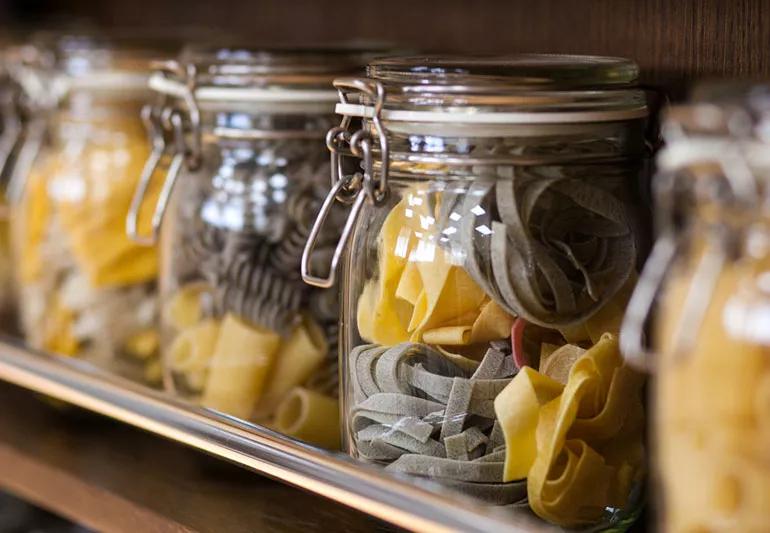The short answer from a registered dietitian

Q: I’ve been seeing all the new types of pastas in the grocery aisle. Are those made from chickpea, black beans or soy beans a healthier choice?
Advertisement
Cleveland Clinic is a non-profit academic medical center. Advertising on our site helps support our mission. We do not endorse non-Cleveland Clinic products or services. Policy
A: When it comes to spaghetti, there are more nutrient-rich options than standard refined flour noodles.
Ones made from beans (like chickpea, black beans or soybeans) have more protein, more fiber and more iron than traditional spaghetti.
Another smart pick? Substitute spaghetti squash for spaghetti. When you cook this yellow, round squash, the inside flesh of the vegetable actually resembles spaghetti noodles. But, it has far more vitamins, minerals and fiber.
Or there are plenty of kitchen gadgets on the market to make your own noodles out of vegetables such as zucchini, carrots, sweet potatoes ― and even beets. No time to DIY it? Most grocery stores now carry veggie noodles in the produce section.
Whatever noodle you choose, just remember that the nutritional value of your dish doesn’t end with the noodle choice.
Choose a healthy fat. Try olive oil or avocado oil, or maybe even some pureed cashews, which can make a nice cream sauce.
Avoid heavy cream-based sauces. Sauces like Alfredo have a lot of unhealthy animal fats. And when choosing a red sauce, look for one with no added sugar. And if it has oil, make sure it’s extra virgin olive oil.
Bump up the veg. Your typical serving size of pasta is somewhere around a half of a cup to a cup. Pump up your bowl with a lot of colorful vegetables, such as roasted eggplant, zucchini, tomatoes and peppers.
Advertisement
And mind your cheese, please! While Parmesan cheese is a nice topping, remember a little bit goes a long way. A tablespoon or less is fine, without adding too much unhealthy fat.
― Functional medicine registered dietitian Lindsay Malone, RD
Advertisement

Sign up for our Health Essentials emails for expert guidance on nutrition, fitness, sleep, skin care and more.
Learn more about our editorial process.
Advertisement

This color additive, found in many pre-packaged foods, may affect people with ADHD or allergies

With a focus on internal cues for hunger and fullness, this eating style may revolutionize your relationship with food

Review the ingredients, watch for sugar and fat, and choose one with the right amount of protein for your needs

Getting the hang of portions can help you better understand how much to put on your plate

A typical recommended balanced diet is half fruits and veggies, a quarter protein and a quarter grains

Foods high in protein, fiber and water can help keep hunger at bay

This quirky food trend is harmless, as long as you’re getting enough protein, fiber and healthy fats

With a little planning, you can fill your belly and boost your energy

Even small moments of time outdoors can help reduce stress, boost mood and restore a sense of calm

A correct prescription helps your eyes see clearly — but as natural changes occur, you may need stronger or different eyeglasses

Both are medical emergencies, but they are very distinct events with different causes